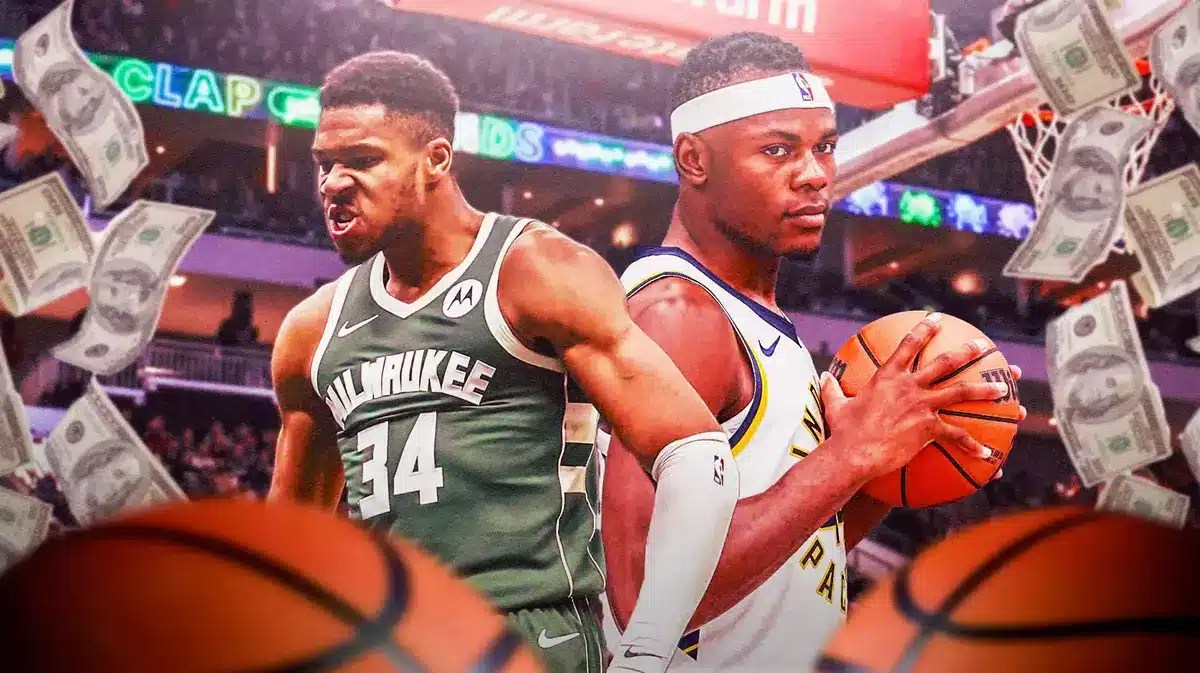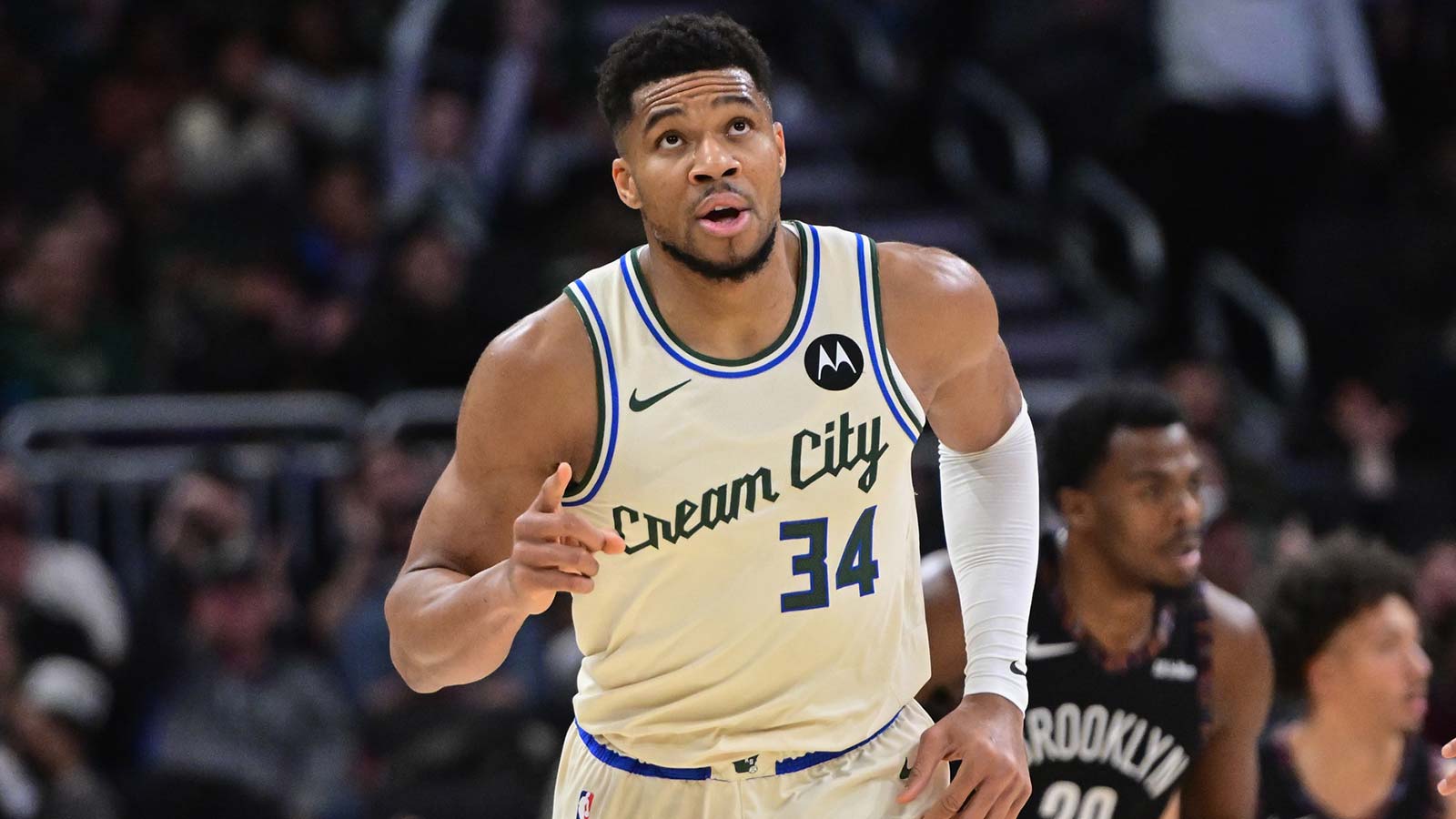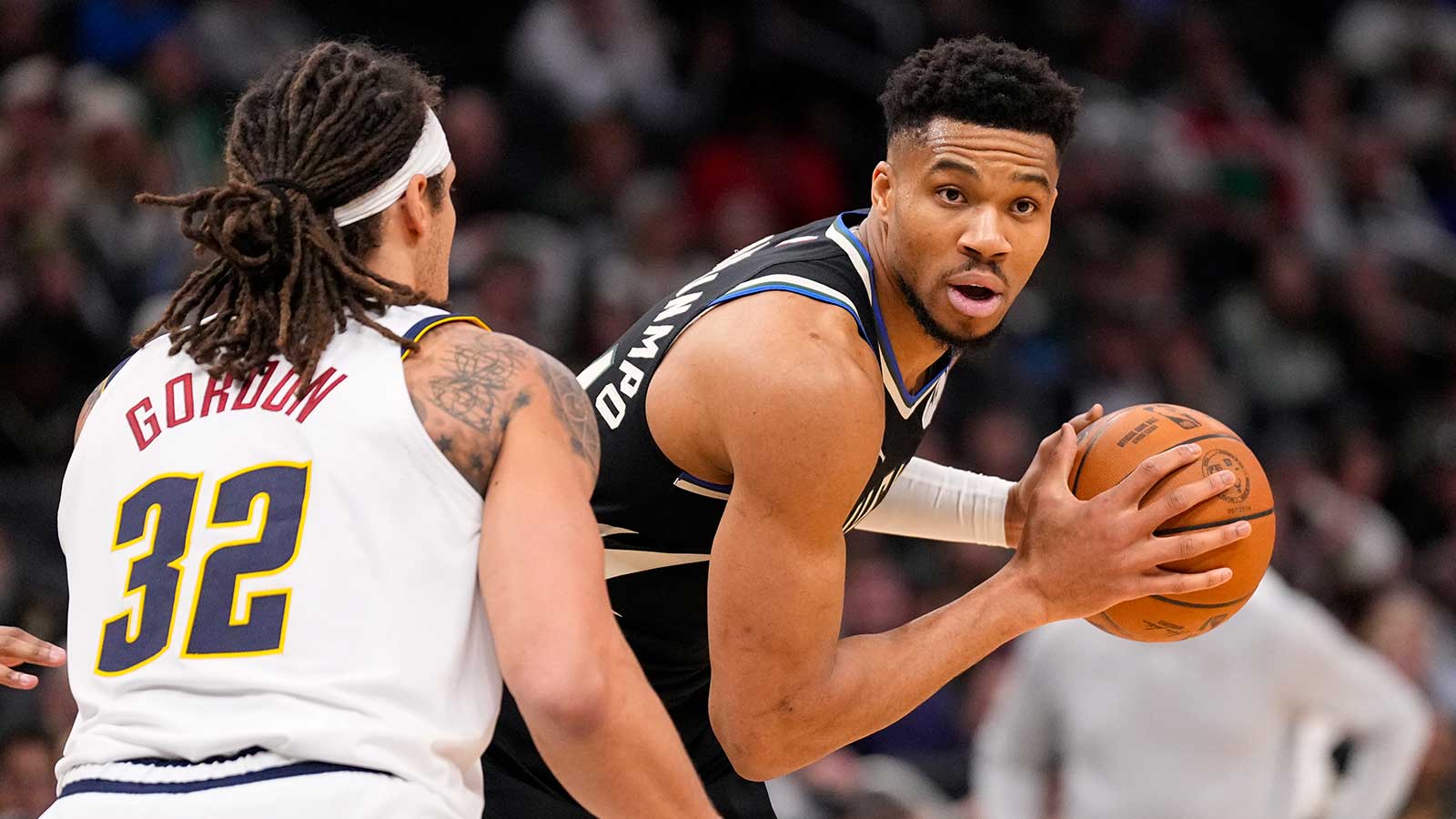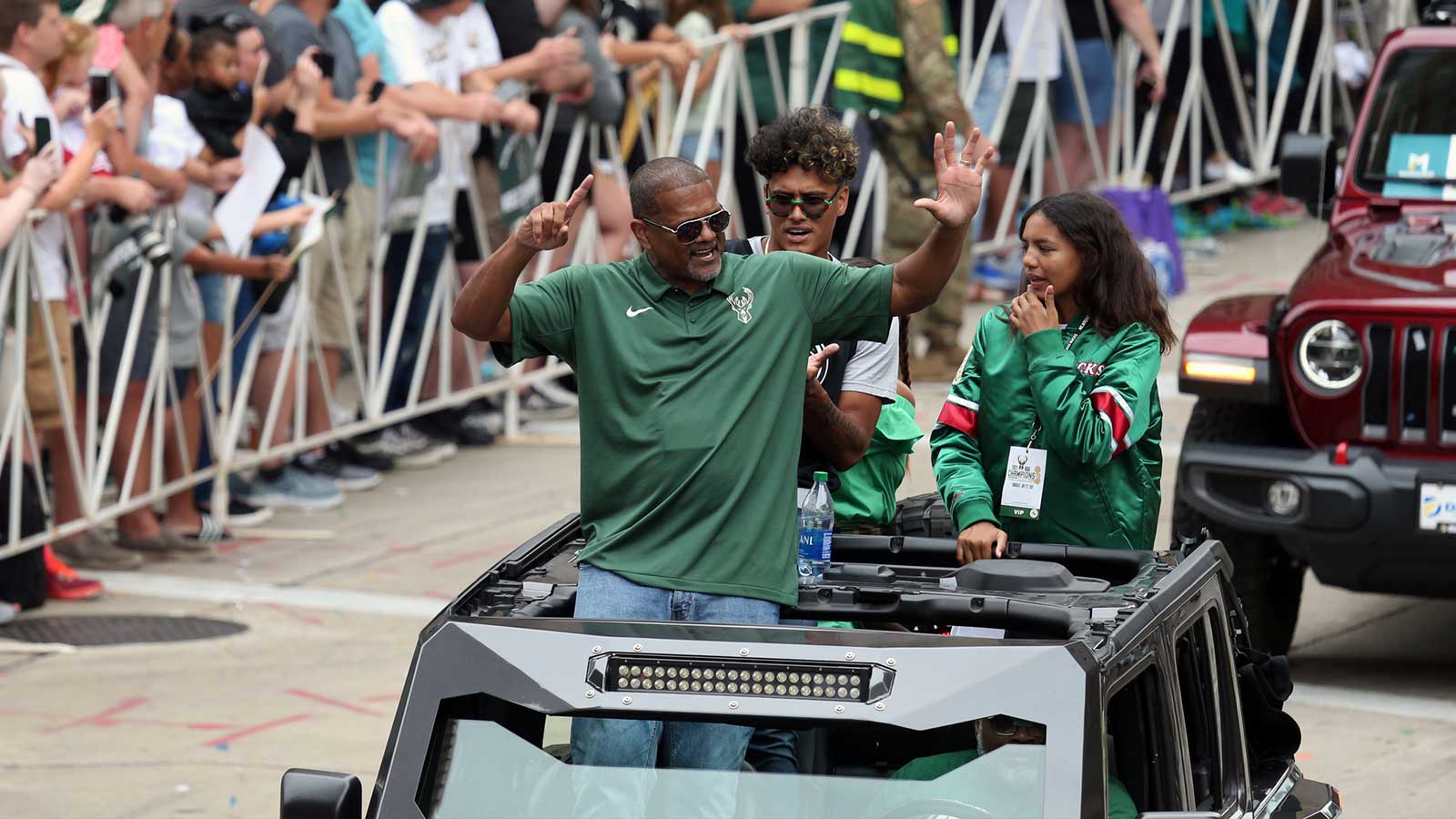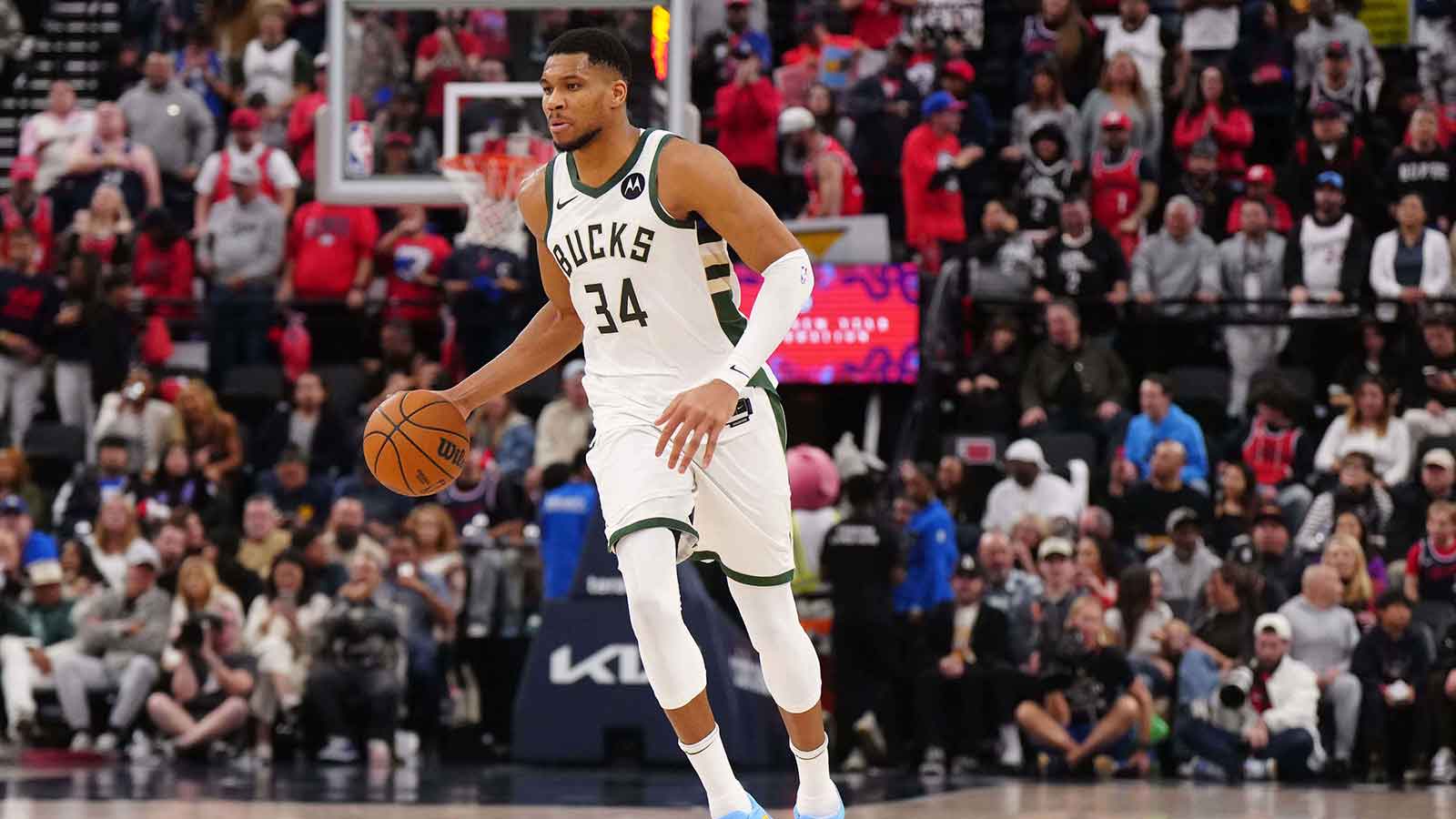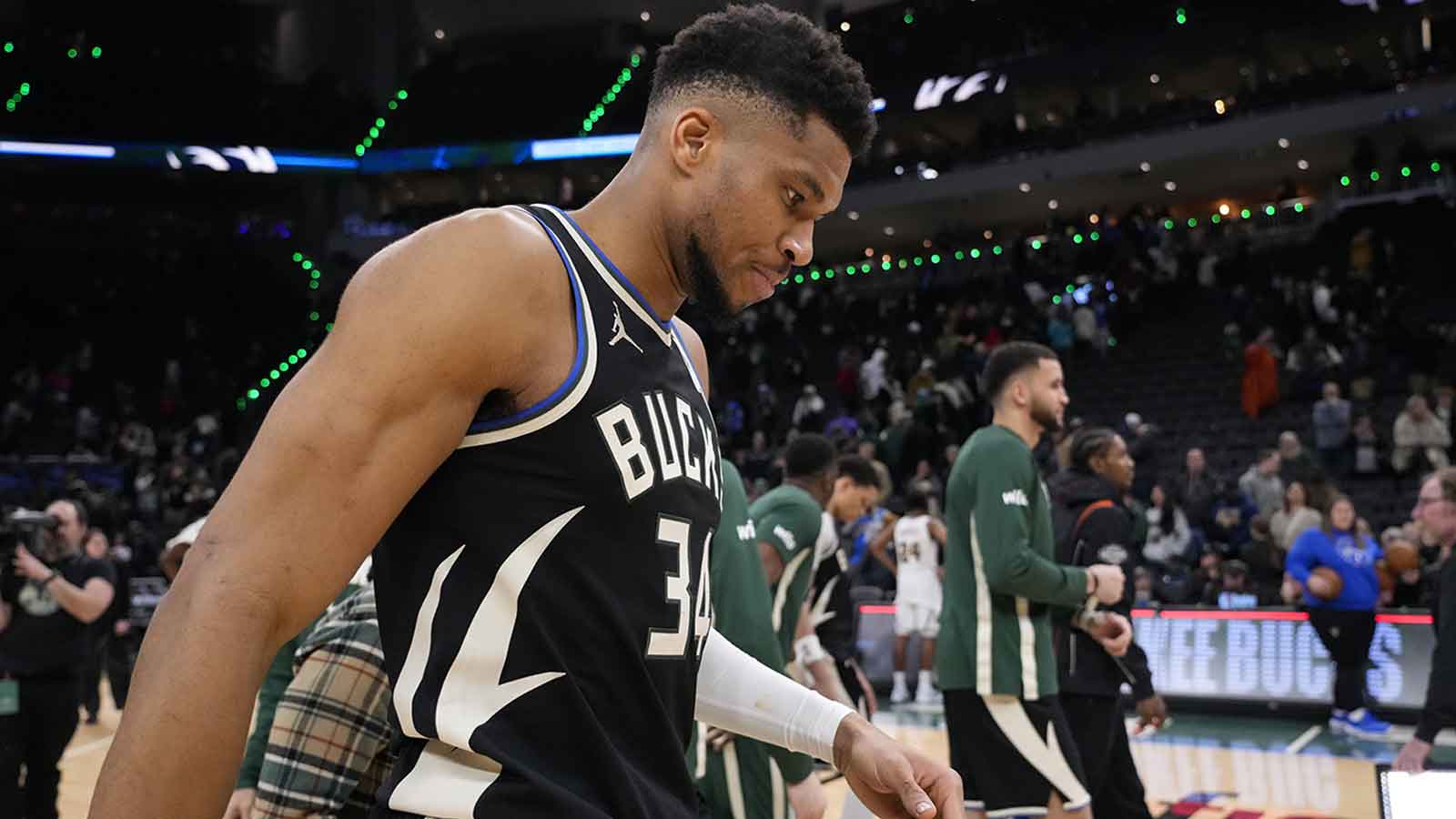As is so often the case, things in the Association got unnecessarily dramatic last night after the Milwaukee Bucks defeated the Indiana Pacers by the final score of 140-126. The takeaway story coming out of the game should've been simple: Giannis Antetokounmpo scored a career-high and Milwaukee Bucks-best 64 points in the win, becoming one of only twelve players in NBA history who have scored 64 or more points in a single game. However, this is where things went from celebratory and simple to messy and complicated in a huge hurry.
After the game, Giannis rightfully wanted to take possession of the game ball, but there happened to be one problem… Indiana Pacers rookie Oscar Tshiebwe scored his first NBA point in the game, and decided to snatch up the game ball before Giannis could get his oversized hands on it. And oh boy, the former NBA Finals MVP was not happy about that.
LEAKED Audio Of Pacers Refusing To Give Giannis Antetokounmpo The “Game Ball”👀:
“You want the ball? You’re not getting that ball”
Then, Giannis gets heated at Tyrese Haliburton and yells at him: “Go get the f*cking ball! You need to go get it” pic.twitter.com/e9XAQzNZVl
— LegendZ (@legendz_nba) December 14, 2023
The confrontation continued back into the locker room area, and as things stand right now, Giannis Antetokounmpo is unsure if the ball he's been given was actually the game ball.
The Bucks and Pacers have two more games coming up in less than three weeks. On January 1st and 3rd, Milwaukee and Indiana play a home and home, and there's seemingly no way things won't get heated when the two teams step on the court to play each other in back to back games…
Unless both sides listen to ESPN analyst and former NBA player Richard Jefferson, who offered a level-headed take on the game ball situation:
"Giannis should buy it back from the kid kind of like how you buy somebody's number. Just give the kid a gesture."
Richard Jefferson believes last night's game-ball shenanigans with the Pacers and Bucks can simply be solved.
Thoughts? 🤔 pic.twitter.com/D7iIqKr8qn
— ClutchPoints (@ClutchPoints) December 14, 2023
Theoretically, Richard Jefferson's plan could put a quick end to the entire saga. Giannis Antetokounmpo signed a three-year, $186 million extension with the Bucks two months ago, so he clearly has money to spend. He could theoretically turn to Oscar Tshiebwe and say “Everybody has a price,” like he's doing his best Ted Dibiase impression. At some point, Tshiebwe, who is making about $500,000 this season on a two-way contract with the Pacers, will relent, thus putting an end to Game Ball-gate, and all will be right with the world again until something unnecessarily dramatic happens again.

